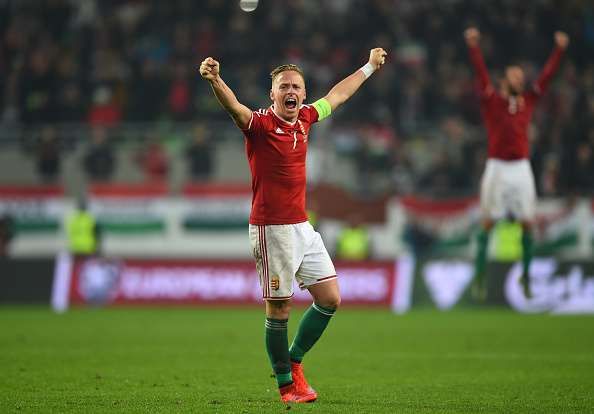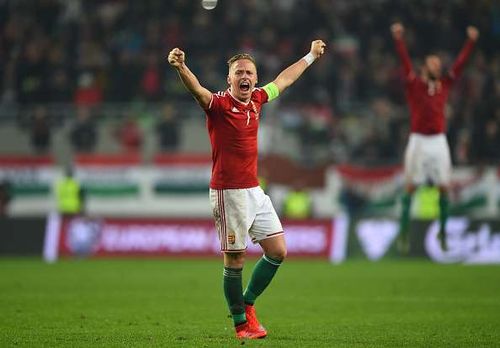
Hungary's re-emergence in international football is down to captain and star Balazs Dzsudzsak

There was a time when the beautiful game was synonymous with the Hungarian national team. The Magyars revolutionised the game in the 1950s but due to obvious factors the Hungarian style of play somehow got obliterated from the face of this planet and football had to wait for thirty years to see the Eastern Europeans appear again in an international tournament.
Euro 2016 presents Hungary an ideal opportunity to assure Hungarians that football has once again taken a front seat in a country that has always suffered from poor administration, corruption and lack of player growth. These are the factors that have contributed greatly to the demise of a great football nation which last appeared in a World Cup in Mexico in 1986 and last played in the European Championships way back in 1972.
Having been runners-up in the 1938 and 1954 World Cups and dominating World football for the better part of the 1950s and 1960s, this was too drastic a downfall for a football nation that gave the World Ferenc Pukas and the earliest version of the so-called Dutch ‘Total Football’. Euro 2016 provides an ideal platform for Hungary to set a mark once again.
While the qualifying campaign represented various emotional ups and downs that saw three managers come to the fore to manage the team, the Magyars finally made it to France via a two-legged play-off against Norway courtesy of their third manager Bernd Storck’s German incisiveness, discipline and precision. Qualifying for France marks an end to a frustrating wait for a generation of players that had seen some heartbreaking near misses while qualifying for international tournaments.
No Hungarian player deserves more to represent his country in an international tournament than captain and talisman Balazs Dzsudzsak . Hungary’s flag bearer for the past decade, Dzsudzsak epitomises patience, courage and the ability to excel as a player outside his country. Formerly of PSV Eindhoven and now plying his trade in Turkey with Bursaspor, the 29-year-old has singlehandedly carried the hopes of an entire nation by coming up with a workhorse like performances and important goals from set-pieces.
With a German coach at the helm, the Hungarians mainly rely on a water tight defence to frustrate the opponents and this tactical approach has meant the wing play of Dzsudzsak has become ever more important with his incisive passing and shot from distance becoming even more crucial. In short, the former Anzhi winger is the most important source of goals for the Magyars.
The deeper midfield role played by another veteran talisman Zoltan Gera has forced Storck to rely heavily on Balazs Dzsudzsak’s goal scoring opportunities. The ability of the player to find the net from improbable set pieces was once again demonstrated when the skipper scored what turned out to be a priceless equaliser against bitter rivals Romania in Bucharest’s National Stadium during the early part of the qualifying campaign.
Dzsudzsak did not score for the rest of the campaign though but his calming influence and pacy forward play always made Hungary dangerous on the break and his teammates reaped the benefits from his undiminished energy and work ethics. Bernd Storck would require more of this from his captain if the Hungarians are to get out of a group that contains Austria, Portugal and Iceland.
Yet, common Hungarians do not care about who their country are facing as long as their football players can fight till the end and once again lay a mark on international football. Hungary may not take Euro 2016 by storm but just appearing in a major tournament after such a long time will go a long way in providing some sort of flip to the country’s football ambitions.
With age and experience, Balazs Dzsudzsak has become more potent in front of the goal and his all-round play gave Bernd Storck enough leverage to adopt a more conservative yet counter-attacking approach that got the better of Norway in the play-offs.
Capped 76 times by his country, Dzsudzsak has enough international pedigree to shine in the upcoming European Championships and put a smile on the faces of a much suffering football community across the Hungarian nation.
International career
Debut: Greece 2-0 Hungary (2 June 2007, UEFA EURO 2008 qualifying)
Appearances: 76
Goals: 18